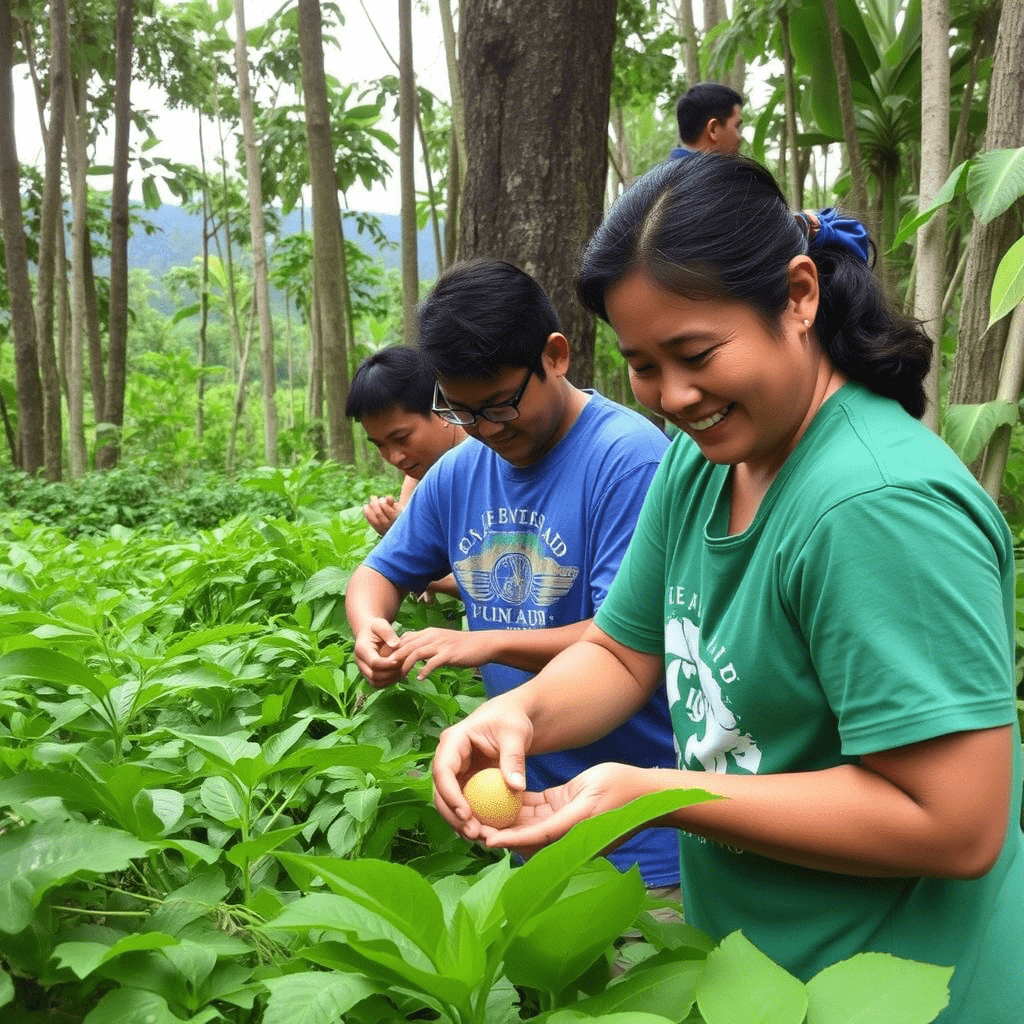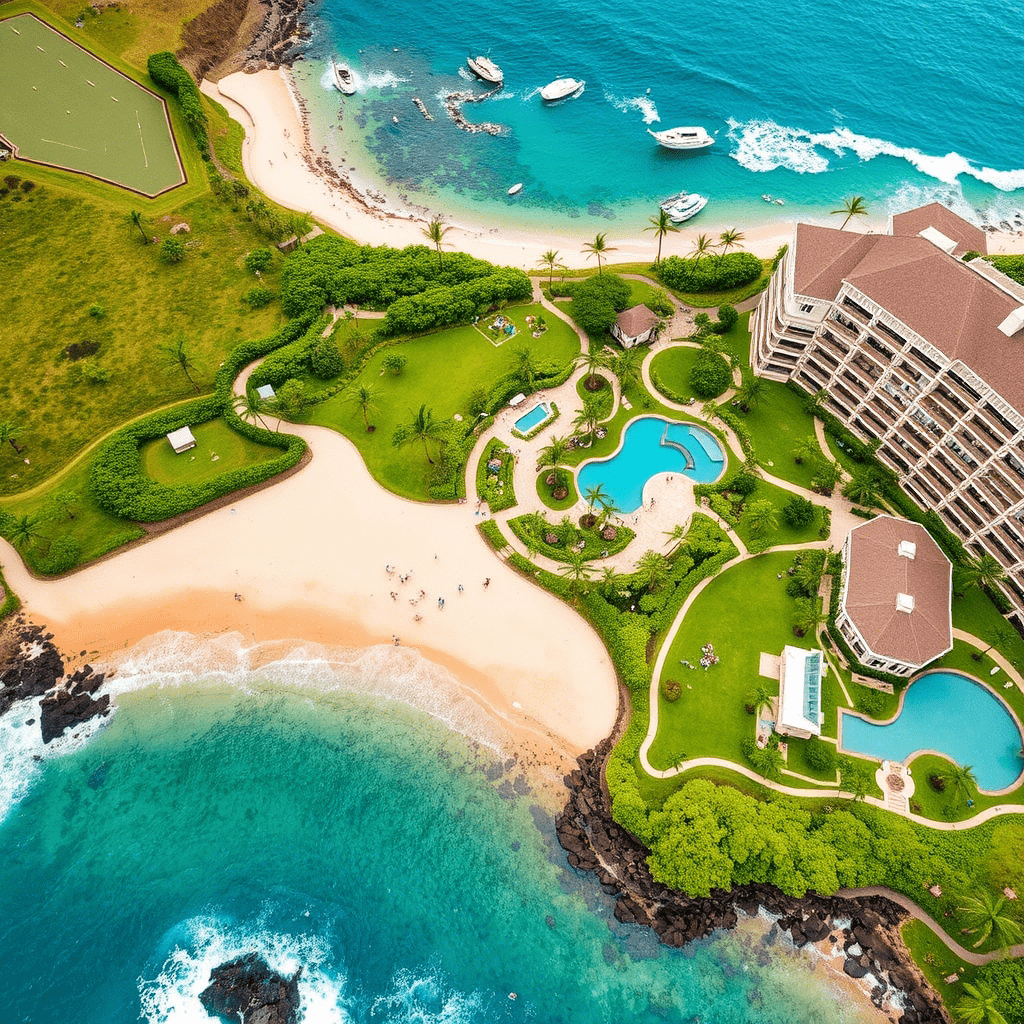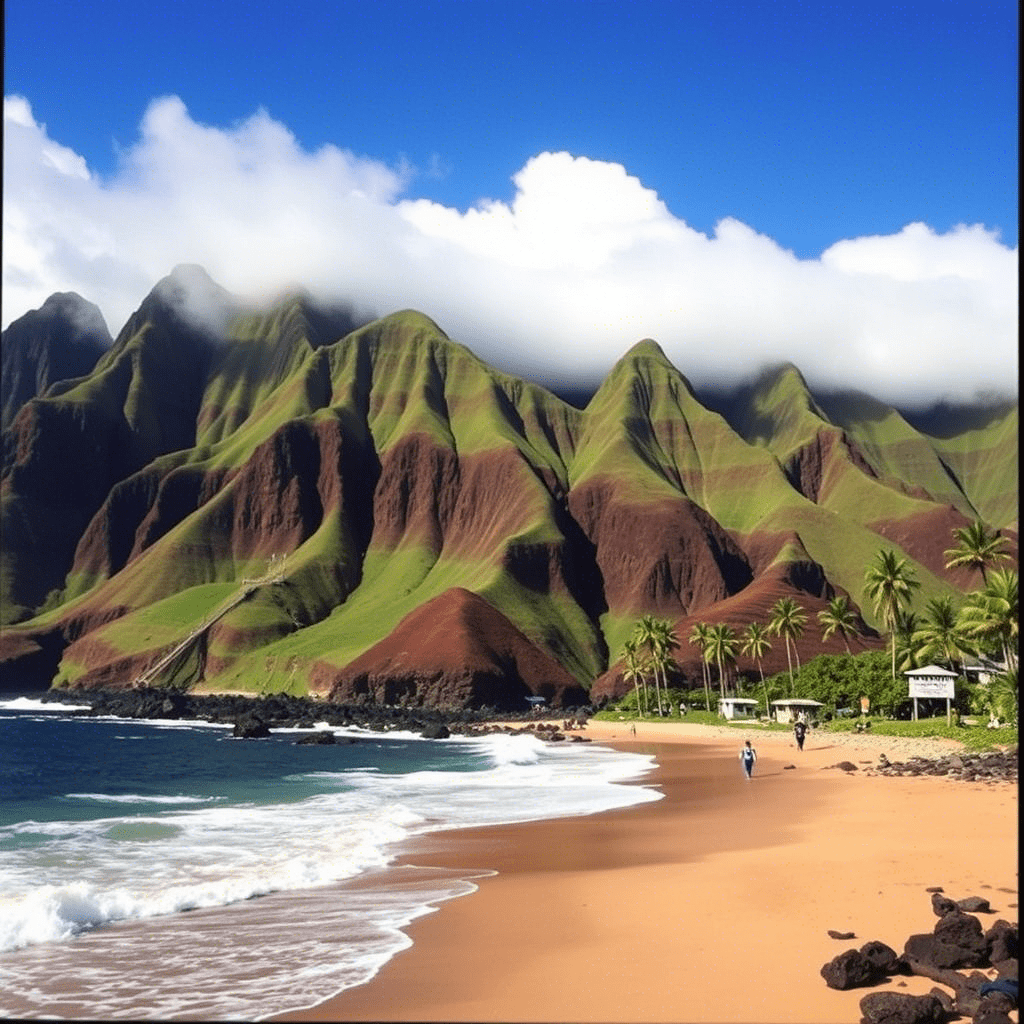In a small, sunlit room on the lush North Shore of Kaua‘i, I watched as purple poi — smooth and starchy — streamed from a traditional grinder into a waiting bucket. Earlier that morning, I had scraped and cubed taro roots alongside my husband and children, preparing them for this ancient process. This wasn’t just a cooking lesson; it was an immersion into mālama, a Hawaiian word that means “to care for” or “to give back.” More than a concept, mālama is a way of life — one that’s now shaping a new kind of tourism in Hawaii.
At the Waipā Foundation, a nonprofit dedicated to land conservation and cultural preservation, we learned how mālama invites visitors not only to enjoy Hawaii’s beauty but to help sustain it. From beach cleanups to habitat restoration, and even food preparation like making poi, travelers are encouraged to leave the islands better than they found them. And while these experiences deepen your connection to the place, they also offer practical benefits — including free or discounted hotel stays at participating resorts.

A Living Legacy
The foundation of mālama lies in Hawaii’s deep-rooted traditions. Long before mass tourism transformed the islands, Hawaiians lived under a sustainable resource management system called ahupuaʻa — a model where land was divided from mountain to sea, ensuring balance between people and nature. Every action taken upstream affected the health of the ocean and reefs downstream. This interconnectedness remains central to the Hawaiian worldview today.
“Living on these distant islands meant we had to be self-sufficient and understand our environment,” explained Kelsey Ke’alohilani Rogers, a guide at Waipā. “The Western world was different – it just conquered and took what it needed.”
Rogers shared the legend of kalo (taro), which symbolizes the sacred relationship between Hawaiians and their land. According to tradition, Earth Mother and Sky Father buried their stillborn son, and from that spot grew the first kalo plant. Their second child, Hāloa, became the first human — making kalo not just a staple food, but family. “This is why kalo is more than food; it’s family,” she said.
Yet keeping kalo — and other native foods — accessible is increasingly difficult. High costs of living have forced many families into multiple jobs, leaving little time for farming. That’s why organizations like Waipā provide fresh poi at cost — or even for free — to local residents. As Rogers put it, “You’re not just learning — you’re supporting people by producing affordable food.”
Tourism with Purpose
Across the islands, mālama-inspired volunteer opportunities abound, offering visitors meaningful ways to give back while deepening their connection to Hawai‘i’s natural and cultural heritage.
On Maui, you can join reforestation projects or nursery work, helping to restore native forests that are vital to the island’s ecosystem and traditional Hawaiian practices. In O‘ahu, volunteers clear invasive algae from Maunalua Bay, contributing to the revitalization of a cherished marine environment, or assist aboard the historic USS Missouri, where they help preserve an important piece of American and local history. On Kaua‘i, the options range from agroforestry—where participants learn about sustainable farming and ancestral land stewardship—to dog adoption days through the Kaua‘i Humane Society, which helps animals find loving homes.
Many hotels support the initiative as part of their commitment to sustainable tourism. At the Grand Hyatt Kauai Resort & Spa, guests who participate in a beach cleanup earn a free fifth night, turning service into a rewarding getaway. Similarly, the Four Seasons Resort Maui at Wailea—made famous by HBO’s The White Lotus—offers discounts to those who engage in mālama activities, recognizing the value of travel that gives back.
These aren’t just feel-good add-ons. They’re immersive experiences that connect visitors with the culture, history, and ecology of the islands in ways that standard tourism rarely allows. Through hands-on participation, travelers become more than spectators—they become stewards, contributing to the preservation of Hawai‘i’s unique landscapes and traditions for future generations. Whether planting trees, caring for animals, or learning from Native Hawaiian practitioners, these experiences foster a deeper understanding of what it truly means to honor and protect ‘āina (the land) and community.
Healing Land and People
Our family also visited Common Ground, a regenerative farm on Kaua‘i once used for sugar cultivation. Now, it serves as a hub for mālama ‘āina — caring for the land — offering tours and communal meals that celebrate local ingredients. We joined a feast under swaying palms, sharing dishes grown from soil revitalized through sustainable practices. It was more than a meal; it was a celebration of renewal.
As one lifeguard near the Hyatt resort told me, “For many, Hawaii is just a playground, a Disneyland. But homes have become holiday rentals, pushing locals out. If tourism is going to work here, it must benefit the local community.”
That’s exactly what mālama aims to do.

A Path Forward
Hawaii’s inclusion in BBC Travel’s list of Best Places to Visit in 2025 reflects its growing role as a destination using tourism for good. Mālama is part of that shift — a way to honor the past while building a more sustainable future.
As Rogers reminded us, “Mālama isn’t about seeing or appreciating a landscape — it invites visitors to connect and contribute to it. Caring for a place fosters a stronger relationship with it.”
So next time you plan a trip to Hawaii, consider more than snorkeling and sunsets. Roll up your sleeves, dig into the earth, and share a bowl of poi. Let mālama transform your visit into something deeper — a gift to the islands, and to yourself.
Related Content
- Mālama: The word embodying the spirit of Hawaii – BBC Travel
- Tropical moths travel 4,500 miles in woman’s bag
- Submarine Adventures in Gran Canaria: A Rip-Off That Highlights a Dying Ocean
- Top 5 Must-See Attractions in Gran Canaria + Stay at the Eco-Friendly Lopesan Villa del Conde Resort
- 30 Days of Heatwave Per Year, Up to 50°C Feared: Why Île-de-France Could Become a Hell in Summer by 2050
- Bali: A Tourist Trap or Tropical Treasure?
- Rural Belts Around Cities Can Reduce Urban Summer Temperatures by Up to 0.5°C
- Discover the World with Polarsteps: Your Ultimate Travel Companion
- [eSHOP] Hot Sports Water Bottle 500ML 1000ML Protein Shaker Outdoor Travel Portable Leakproof Drinkware Plastic My Drink Bottle BPA Free
- Mālama: The word embodying the spirit of Hawaii | Melissa Feezor
- Tony Rosado on X: “Mālama: The word embodying the spirit of Hawaii / X
